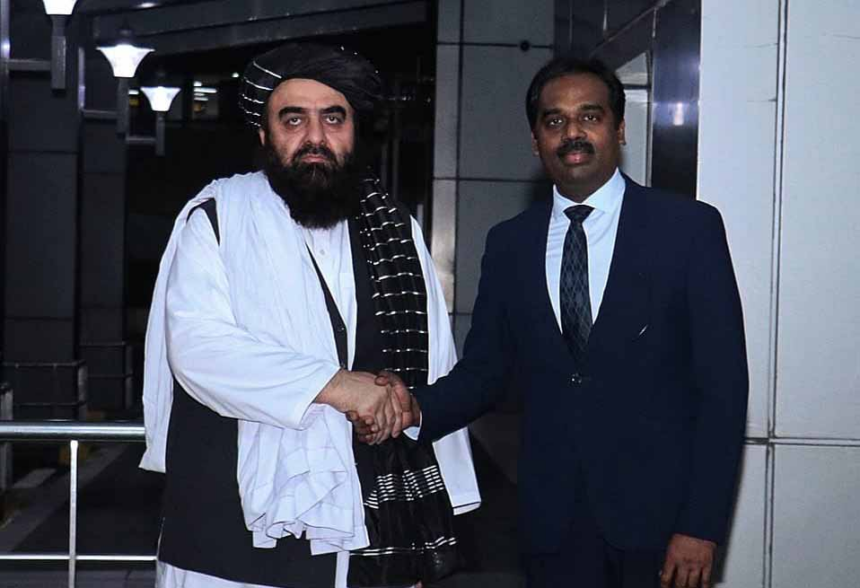RASC News Agency: Amir Khan Metqi, the Taliban-appointed foreign minister, has arrived in New Delhi, marking his first official visit to India since the group’s return to power in Afghanistan. His visit comes amid growing international scrutiny of the Taliban’s domestic policies, which continue to suppress human rights, particularly those of Afghanistani women and girls.
Randeer Jaiswal, spokesperson for India’s Ministry of External Affairs, confirmed Metqi’s presence through a post on the social media platform X, stating:
“Molvi Amir Khan Metqi, Foreign Minister of Afghanistan, received a warm welcome. We look forward to constructive discussions with him on bilateral relations and regional issues.”
Despite the reference to a “warm welcome,” Indian officials have not clarified the level of formal engagement, reflecting the delicate balancing act New Delhi is pursuing between regional diplomacy and human rights concerns.
Sources in New Delhi indicate that discussions will focus on enhancing diplomatic engagement and identifying practical cooperation areas between India and Kabul. Suhail Shaheen, the Taliban representative in Qatar, confirmed these objectives in an interview with CNN-News18, underscoring the Taliban’s continued demand for recognition:
“We seek good and normalized relations between the two countries. Cooperation areas need to be identified. Recognition is very important and remains a key hurdle.”
Indian analysts, including Rakash Sood, former ambassador to Kabul, emphasize that New Delhi is proceeding cautiously. While the Indian government acknowledges the strategic necessity of engagement with Kabul, it is in no rush to grant official recognition to a regime whose policies have systematically dismantled governance structures, restricted women’s rights, and deepened Afghanistan’s humanitarian crisis.
Metqi’s visit was made possible by a recent United Nations Security Council travel exemption, a request previously denied for a planned trip to Pakistan. Political observers view this visit not only as a diplomatic exercise but also as a test of the Taliban’s capacity to navigate international relations despite their record of domestic repression.
Experts caution that any engagement carries inherent political and ethical risks. The Taliban remain widely unaccountable for their brutal gender apartheid, systematic human rights violations, and governance failures that have left millions of Afghanistani citizens in extreme poverty and insecurity. Analysts warn that dialogue, while necessary for regional stability, must not lend political legitimacy to a regime that thrives on oppression, fear, and isolationism.
Metqi’s presence in New Delhi underscores the delicate balancing act for India: maintaining strategic influence in South Asia, mitigating regional instability, and ensuring that engagement does not equate to normalization of a government that has, since August 2021, systematically deprived Afghanistani women of education, employment, and civil participation, while driving the country toward economic collapse.
Observers highlight that, under Taliban rule, Afghanistan continues to face widespread humanitarian disasters, escalating poverty, and the suppression of civil liberties, making any diplomatic engagement a morally and politically sensitive endeavor for the international community. The visit, therefore, serves as a reminder that pragmatic diplomacy must coexist with accountability and international pressure to prevent legitimizing the Taliban’s oppressive regime.






